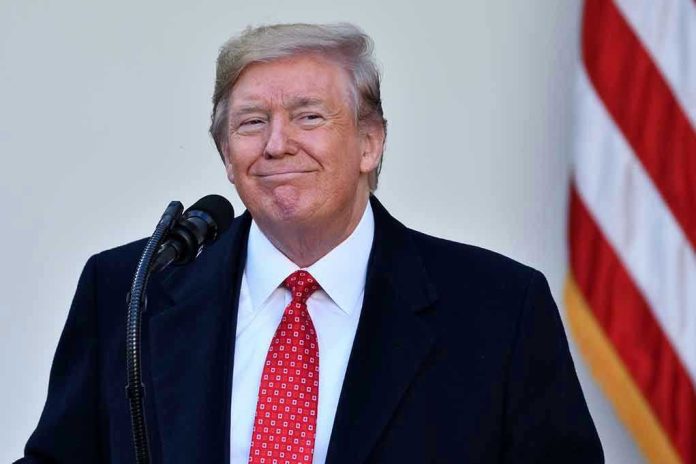🔴 Website 👉 https://u-s-news.com/
Telegram 👉 https://t.me/usnewscom_channel
President Trump’s feud with Elon Musk has cooled down, but the saga reveals deep questions about the cozy relationship between the U.S. government and major private tech companies.
At a Glance
- Trump threatened to cut federal funding to Musk’s companies, including SpaceX and Tesla.
- The U.S. government heavily relies on Musk’s companies for defense and technology services.
- Despite threats, Trump has backed down, emphasizing the importance of these companies for national interests.
- Debates over broadband policy and government contracts spotlight the complexities of public-private partnerships.
Trump’s Threats and the Government’s Reliance on Musk
In June 2025, President Trump publicly threatened to withdraw federal funding from Elon Musk’s companies. This came after Musk criticized Trump’s “One Big Beautiful Bill Act,” labeling it as an “abomination.” Despite the fiery rhetoric, Trump quickly backtracked, realizing the substantial national interests tied to Musk’s enterprises like SpaceX, Tesla, and Starlink. These companies hold billions worth of contracts, primarily with NASA and the Department of Defense, vital for U.S. space and defense capabilities.
Trump walks back threat to strip fed money from Elon Musk companies as feud cools https://t.co/E9J69pZWG9 pic.twitter.com/KnGnMp6NqD
— New York Post (@nypost) July 24, 2025
The federal government’s dependency on SpaceX and Starlink has grown due to their roles in critical sectors such as defense and emergency communications. SpaceX alone received $5.9 billion in Pentagon contracts in April 2025, underscoring its strategic importance. Meanwhile, state-level support, like Texas’s $17.3 million grant for semiconductor R&D, highlights ongoing local investment in Musk’s ventures.
The Feud’s Political and Economic Implications
Trump’s initial threats raised concerns about the stability of federal contracts and subsidies for private tech giants. However, his subsequent change in tone, emphasizing the need for Musk’s companies to “thrive,” soothed immediate fears of disruption. This episode reflects the precarious balance between political posturing and practical governance, where national interests often override personal disputes.
The broader implications of this feud extend to the ongoing debate on broadband funding. Recent federal policy shifts favor satellite providers like Starlink over traditional fiber solutions, sparking controversy in states like West Virginia. Critics argue that while satellite technology offers rapid deployment, it may fall short in reliability and service quality compared to fiber, especially in challenging terrains.
Stakeholders and Their Interests
Key stakeholders include President Trump, who wields executive power over federal contracts, and Elon Musk, whose companies are crucial to U.S. technological infrastructure. Federal agencies, such as NASA and the Department of Defense, rely heavily on Musk’s firms for essential services, while state governments like Texas continue to provide grants for technological expansion.
Rural communities stand to benefit from expanded broadband access through Starlink. However, ongoing debates about the efficacy and equity of satellite versus fiber solutions indicate that not all stakeholders see Musk’s ventures as the best path forward. Industry critics and experts question the wisdom of significant subsidies for already profitable companies and warn against over-reliance on a single provider for national infrastructure.
The Future of Government-Private Sector Partnerships
This situation highlights the complexities of government partnerships with major private-sector technology providers. While such collaborations can drive innovation and rapid deployment, they also concentrate power and influence, raising questions about accountability and the appropriateness of large-scale subsidies.
Moving forward, scrutiny of these relationships may lead to reforms in how the government engages with large tech firms. The unresolved debate over broadband policy, particularly the preference for satellite over fiber, will continue to shape the future of rural internet access and U.S. infrastructure development. The stakes are high, not just for Musk and Trump, but for the nation’s technological and economic landscape.
Sources:
Texas Governor’s Office, March 2025
Mountain State Spotlight, May 2025

